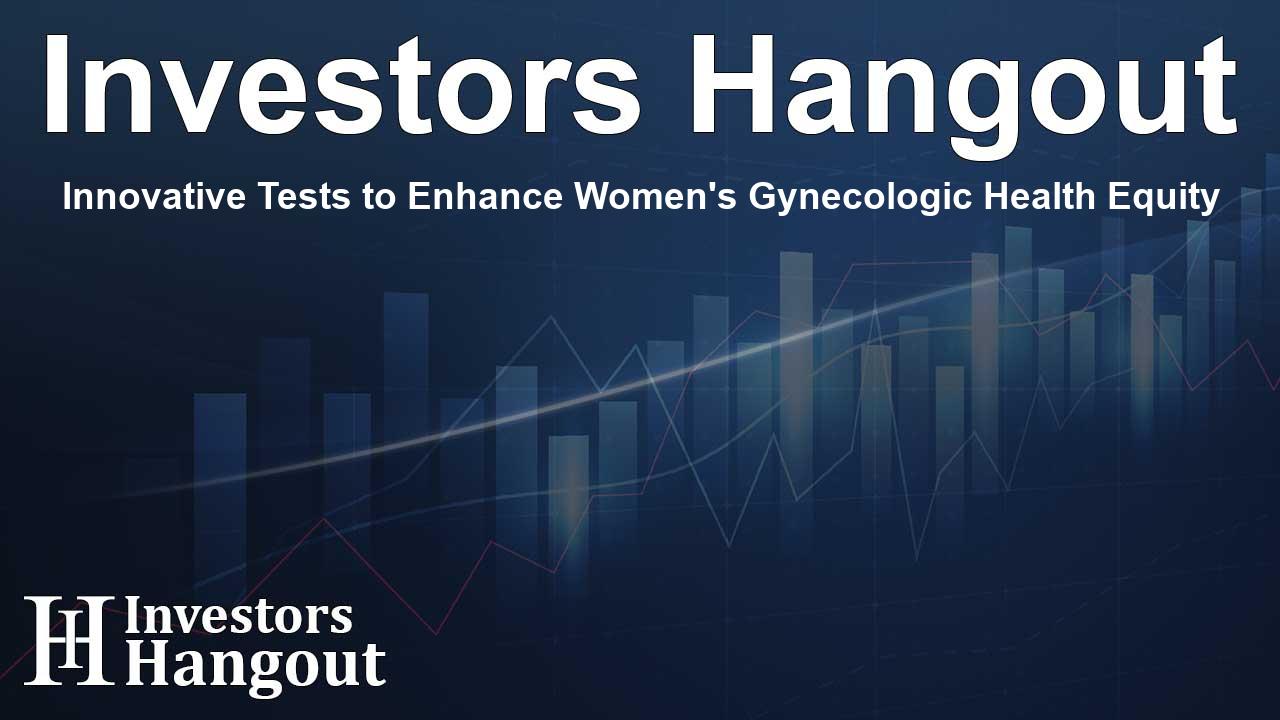Innovative Tests to Enhance Women's Gynecologic Health Equity

Transforming Gynecologic Cancer Testing
The recent advancements showcased at ADLM 2025 highlight significant breakthroughs in testing for gynecologic cancers, particularly cervical and endometrial cancers. These tests aim to enhance accessibility and accuracy for women across diverse backgrounds, thereby promoting better health outcomes.
Enhanced Screening Options for Cervical Cancer
One of the pivotal studies presented reveals a self-collection test for human papillomavirus (HPV), a known contributor to cervical cancer. This innovative approach is set to empower women, especially in underserved communities, by enabling screening in accessible settings like local clinics and community events. Dr. Zhengchun Lu, part of the research team from Oregon Health & Science University, emphasized that this method could dramatically increase screening rates in populations that traditionally face challenges with access.
Significance of Community-Based Screening
Research indicates that when HPV self-collection is conducted within a culturally sensitive framework, it improves both education and screening uptake among participants. In a study that followed 28 Asian women, self-collected samples yielded valid results, with a high percentage indicating a preference for this method due to its convenience and comfort.
Addressing Barriers with Self-Collection
Dr. Lu noted that removing logistical, language, and cultural barriers through self-collection offers a patient-centered mandate for cervical cancer prevention, focusing on outreach to communities in need. This change is not merely procedural; it represents a significant shift in healthcare philosophy, prioritizing accessibility and personalized care in gynecologic health.
Revolutionizing Endometrial Cancer Diagnosis
Endometrial cancer stands out as the most common gynecologic cancer in high-income countries and presents a diagnostic conundrum. Traditional biopsy methods often result in inconclusive findings, leading to further invasive procedures. The innovation presented at ADLM 2025 includes a test that enhances diagnostic accuracy by focusing on specific proteins in uterine fluid samples.
The WomEC Test: A Minimally Invasive Approach
Described by Dr. Antonio Gil from MiMARK Diagnostics, the WomEC test uses advanced mass spectrometry to detect proteins indicative of endometrial cancer. This approach not only minimizes the number of invasive follow-ups but also alleviates the anxiety and pain associated with previous diagnostic methods.
Future Prospects for Diagnostic Testing
With the potential for clinical implementation within a few years, this test aims to enhance the diagnostic landscape for endometrial cancer, significantly impacting the way symptoms are evaluated and diagnosed. The focus is on maintaining high diagnostic performance through ongoing research and development.
The Importance of Educational Opportunities at ADLM 2025
ADLM 2025 offers a platform for healthcare professionals to engage with pioneering research that tackles pressing concerns like improving clinical capabilities in artificial intelligence and misinformation in healthcare. With over 800 exhibitors participating, attendees can explore advancements in diagnostic technology that could shape the future of healthcare.
Understanding ADLM's Role in Laboratory Medicine
The Association for Diagnostics & Laboratory Medicine (ADLM) plays a crucial role in enhancing health through laboratory medicine, uniting professionals dedicated to improving diagnostic standards globally. Their efforts focus on fostering collaboration and innovation to elevate health outcomes for women facing gynecologic cancers.
Key Takeaways for Women's Health
With these advancements in testing procedures for cervical and endometrial cancers, there is a tangible shift towards equitable healthcare solutions for women. Ensuring that all women, regardless of background or location, have access to critical diagnostic tools can lead to earlier detection and significantly improved outcomes in gynecologic health.
Frequently Asked Questions
What are the key findings regarding HPV self-collection tests?
Research indicates that self-collection tests for HPV significantly improve screening rates among underserved women by reducing barriers to access.
How does the WomEC test benefit women suspected of having endometrial cancer?
The WomEC test focuses on identifying specific proteins in uterine fluid, enhancing diagnostic accuracy while reducing invasive procedures.
What is the aim of ADLM 2025?
ADLM 2025 aims to present cutting-edge research and innovation in laboratory medicine, focusing on improving diagnostic methods and patient care.
Who conducted the studies on the new testing methods?
The studies were conducted by researchers from institutions like Oregon Health & Science University and MiMARK Diagnostics, focusing on improving gynecologic health diagnostics.
How can increased access to testing change women's health outcomes?
Greater access to cancer screenings and diagnostics can lead to earlier detection, better treatment options, and improved survival rates for women diagnosed with gynecologic cancers.
About The Author
Contact Kelly Martin privately here. Or send an email with ATTN: Kelly Martin as the subject to contact@investorshangout.com.
About Investors Hangout
Investors Hangout is a leading online stock forum for financial discussion and learning, offering a wide range of free tools and resources. It draws in traders of all levels, who exchange market knowledge, investigate trading tactics, and keep an eye on industry developments in real time. Featuring financial articles, stock message boards, quotes, charts, company profiles, and live news updates. Through cooperative learning and a wealth of informational resources, it helps users from novices creating their first portfolios to experts honing their techniques. Join Investors Hangout today: https://investorshangout.com/
The content of this article is based on factual, publicly available information and does not represent legal, financial, or investment advice. Investors Hangout does not offer financial advice, and the author is not a licensed financial advisor. Consult a qualified advisor before making any financial or investment decisions based on this article. This article should not be considered advice to purchase, sell, or hold any securities or other investments. If any of the material provided here is inaccurate, please contact us for corrections.
